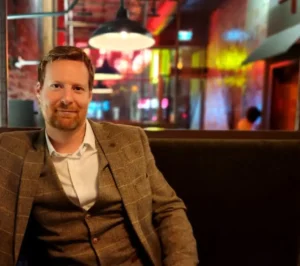Many businesses begin because of two things; a need for something and a passion to see it come to life. Perhaps there’s a gap in the market (something isn’t currently available and they want it to be) or perhaps it is available, but they feel that the quality is lacking and it can be done better. This is especially true in the world of the children’s activity business. Many start-ups in this sector spot a gap and achieve early success from passion and perseverance. And with success comes growth. But before long, growth can present some challenges. There comes a point where an owner/operator needs to make a bold decision. Are they content with the size of the current business? Or do they continue to grow and scale? And if so, how is this done? What’s the best way to go about growing an already successful business? One popular method is franchising.
What is Franchising?
In a nutshell, franchising is where an existing successful business decides to expand by packaging its model, systems, processes and intellectual property (IP), and licensing this under the terms of a franchise agreement to a third party. The third party can be an individual or a company. They are then allowed to use the ‘know-how’ to operate their own business in exchange for an upfront fee and ongoing royalty payments.
When most people hear the word “franchise”, they automatically think “McDonalds”. Whilst many food and beverage companies today operate through franchising, this is certainly not where this model originated. Due to the success of the franchise methodology, many industries have adopted it, including children’s activities. Given the statistics of failure rates for new businesses, as compared to the success rates of franchise businesses, it’s not surprising. For this reason alone, it’s at least worth exploring further.
The Benefits of Franchising
In addition to the high success rates that franchising affords, there are a number of great things about this model, which explain why it’s the focus of the popular book The E-Myth by Michael Gerber. Businesses that adopt the franchise model typically experience faster growth rates and long-term sustainability.
Growth comes from recruiting passionate and motivated individuals who are in business for themselves. In contrast to employees, who often require extrinsic motivation, franchise owners tend to be self-motivated and work harder because they directly reap the rewards of their own inputs. Moreover, franchise businesses adopt a strategy of selling their model to local people. This means that franchisees know their own area better than the franchisor does and are typically very passionate about bringing a brand to their local community.
This passion, combined with the strength of the brand and the network behind it, really helps franchise business owners to thrive. As the British Franchise Association (BFA) says; franchising is being “in business for yourself – not by yourself”.
Lastly, one of the main contributors to the success of franchising, as described in The E-Myth, is its dedication to a systematic approach. Documentation of processes in the form of an operations manual, systematised operations, effective IT systems, such as Zooza, all of which contribute to uniformity across the network and the replication of a successful business model. This enables new franchisees to walk into a turnkey business system, to follow the training and operations manual and to hit the ground running.
Conclusion
If you have an existing, successful business and you’re considering your options for growth and expansion, franchising could be a good methodology to explore. There are an ever-increasing number of experts in the sector, such as business coaches and franchise consultants, who will be able to guide you on your journey, from start to finish. Even if you aren’t sure about the direction you’d like to go in, a franchise consultant will ask you a lot of questions about your business and provide their knowledge and experience to help you determine if it’s the right fit for you.
 About the author:
About the author:
Nick Empson is a qualified business coach, experienced franchise consultant and world traveller. With a passion for working alongside franchisors to help them take their business to the next level, he focuses on operations, vision, strategy, scaling up and international markets. Nick has 18+ years experience in franchising, including a significant tenure at a multi-award winning, global franchise brand seeing it grow from a dozen units in one country to over 330 units across 30 countries. www.levelupbcc.com


 About the author:
About the author:









